Ideas have consequences and so today Joe Miller and Leroy Hill are joined by Dr. Owen Anderson to offer a biblically sound and philosophically robust discussion of Jean-Jacques Rousseau’s book, Discourse on the Origin and Foundations of Inequality among Men. They show how this book you’ve never read is behind many of today’s headlines, cultural conflicts, and maybe even deformed the worldview of many Christians.
REFERENCES
10 Books that Screwed Up the World: And 5 Others That Didn't Help by Benjamin Wiker
“What, then, did Rousseau imagine? If we might be a bit glib, whereas Hobbes’s men in the state of nature were gorillas—nasty, brutish, and curiously short—Rousseau’s primitive men were suave, peaceful, innocent, carefree, and cheerfully libidinous bonobos. Rousseau therefore gave us a new Adam, a carefree, make-love-not-war ancestral archetype who became the societal ideal of the “free love” movements.” — Benjamin Wiker
EPISODES IN THIS SERIES
10 Books that Screwed Up the World
If you want to understand the culture, you need to understand philosophy. But if that task seems overwhelming, this podcast series is just for you.
STUDY GUIDE
MAIN THEMES
Rousseau's Vision of Humanity: The episode examines Rousseau's concept of the "noble savage," arguing that he envisions early humans as inherently good, autonomous individuals corrupted by the advent of civilization and societal structures.
Critique of Civilization: Rousseau views societal advancements, including technology and laws, as "chains of slavery" that stifle individual freedom and lead to inequality.
The General Will vs. Individual Will: The episode explores the conflict between the "general will," representing the collective good of society, and individual desires. This concept, influential on the French Revolution and later Marxist thought, raises questions about the role of government and individual liberty.
Morality as a Social Construct: Rousseau believes morality arises from societal norms, implying that in a state of nature, humans are amoral, driven by instinct and desire.
Suffering and the Role of Government: The episode contrasts Rousseau's view of suffering as something to be avoided through government intervention with the Christian understanding of suffering as a consequence of sin and a call to repentance.
KEY FACTS
Rousseau's troubled childhood, marked by loss and a strained relationship with his father, likely influenced his philosophical views.
Rousseau's "Confessions" presents a stark contrast to Augustine's "Confessions," revealing a self-centered perspective and a lack of understanding of personal sin.
Rousseau's ideas contributed to various movements, including Romanticism, nationalism, the French Revolution, and even totalitarianism.
Rousseau's "noble savage" concept is a "just-so story," lacking historical evidence and serving to justify his critique of civilization.
Rousseau's focus on avoiding suffering through government intervention differs significantly from the biblical view of government's role in upholding justice.
Explores the lasting impact of Rousseau's ideas on contemporary political discourse and social movements, particularly the emphasis on collective identity and the "common good" often at the expense of individual rights.
GOSPEL OPPORTUNITY
The need for Christians to engage with contemporary culture by understanding and critiquing influential philosophies like Rousseau's.
By presenting a robust and compelling biblical worldview, Christians can offer a more accurate and hopeful understanding of human nature, suffering, and the purpose of life.
Rousseau's legacy proves that narratives, even false ones have immense power to change the world. Christians need to become skilled storytellers, effectively communicating the grand narrative of Scripture in a way that resonates with modern audiences.
DISCUSSION POINTS
Below is a list of questions covering just a few of the big ideas discussed in this episode. Subscribers, feel free to weigh in with your own ideas and join me in the conversation.
How did Rousseau's childhood experiences influence his perspective on authority?
What is Rousseau's concept of the "noble savage" and how does it relate to his view of civilization?
How does Rousseau's understanding of the origin of society differ from a biblical worldview?
Explain the concept of the "general will" as articulated by Rousseau. How does it relate to individual will?
What are some key differences between Rousseau's "Confessions" and Augustine's "Confessions"?
According to Rousseau, what is the primary purpose of government? How does this contrast with the biblical view of government's role?
How does Rousseau's concept of suffering influence his philosophical and political views?
What are some potential dangers associated with Rousseau's emphasis on the common good over individual liberty?
Describe the connection between Rousseau's ideas and the rise of modern political ideologies like Marxism.
What do you see as the greatest gospel opportunity presented by engaging with Rousseau's ideas?
GLOSSARY
Noble Savage: Rousseau's romanticized concept of pre-civilized humans who lived in harmony with nature, possessing inherent goodness and innocence.
Social Contract: An agreement among individuals to form a society and government, surrendering certain freedoms in exchange for security and collective benefits.
General Will: The collective good of society, representing the shared interests and values of the community as a whole.
Individual Will: The desires and preferences of a single person, potentially conflicting with the general will.
Common Good: The overall well-being and flourishing of a community, often contrasted with individual interests.
State of Nature: A hypothetical pre-social condition where humans live without government or societal structures.
Romanticism: A literary and artistic movement emphasizing emotion, individualism, and a return to nature.
Totalitarianism: A political system characterized by absolute state control over all aspects of life, suppressing individual liberties and dissent.
Deism: Belief in a God who created the universe but does not intervene in human affairs.
Atheism: Disbelief in the existence of God.







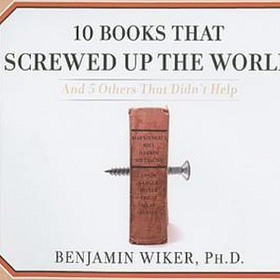



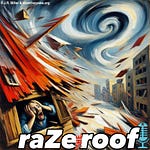
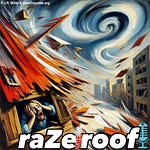
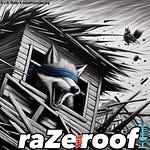
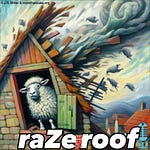
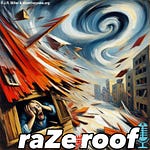
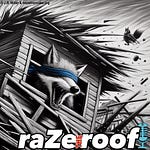
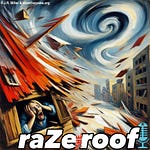
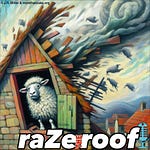
Share this post